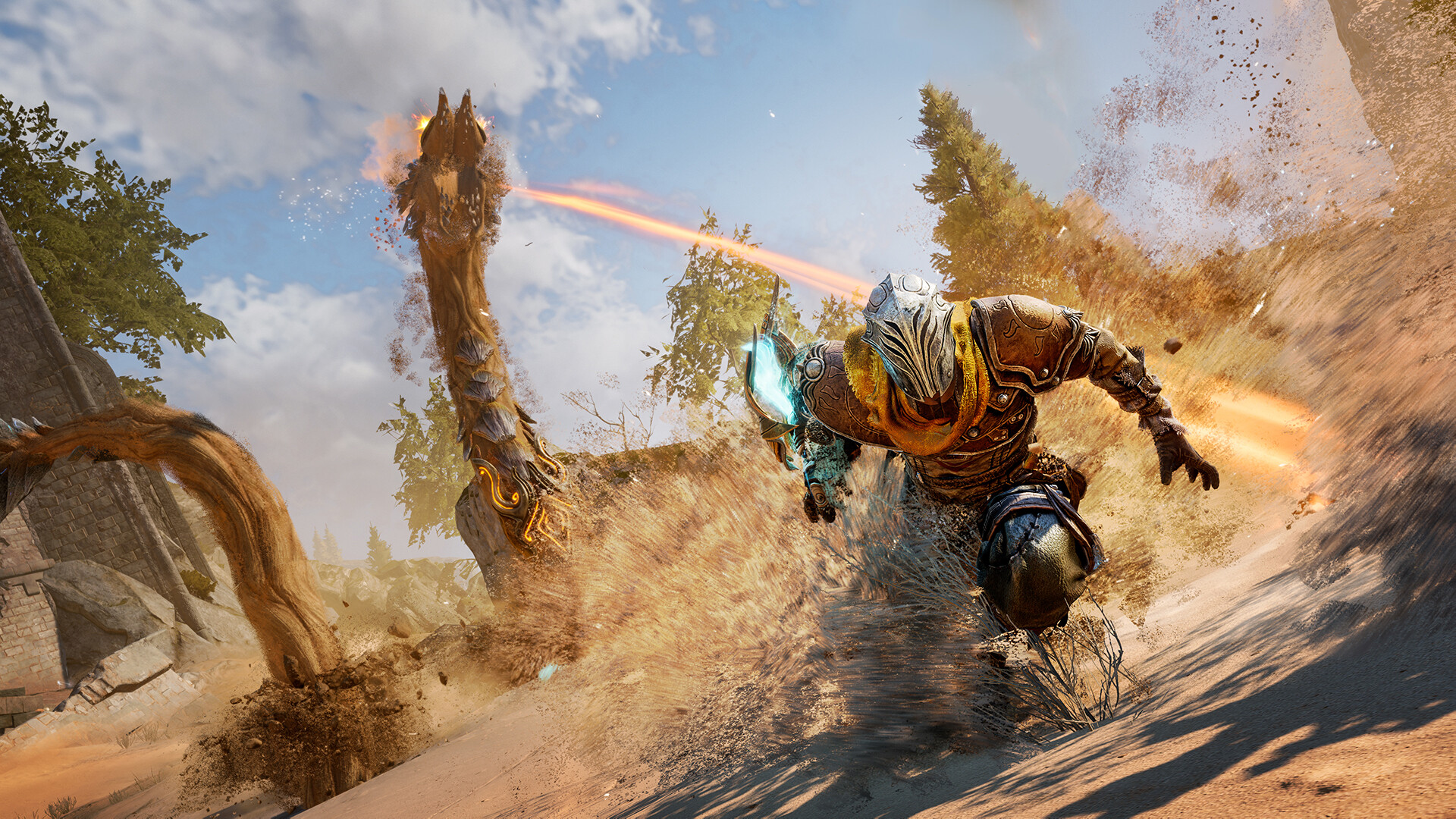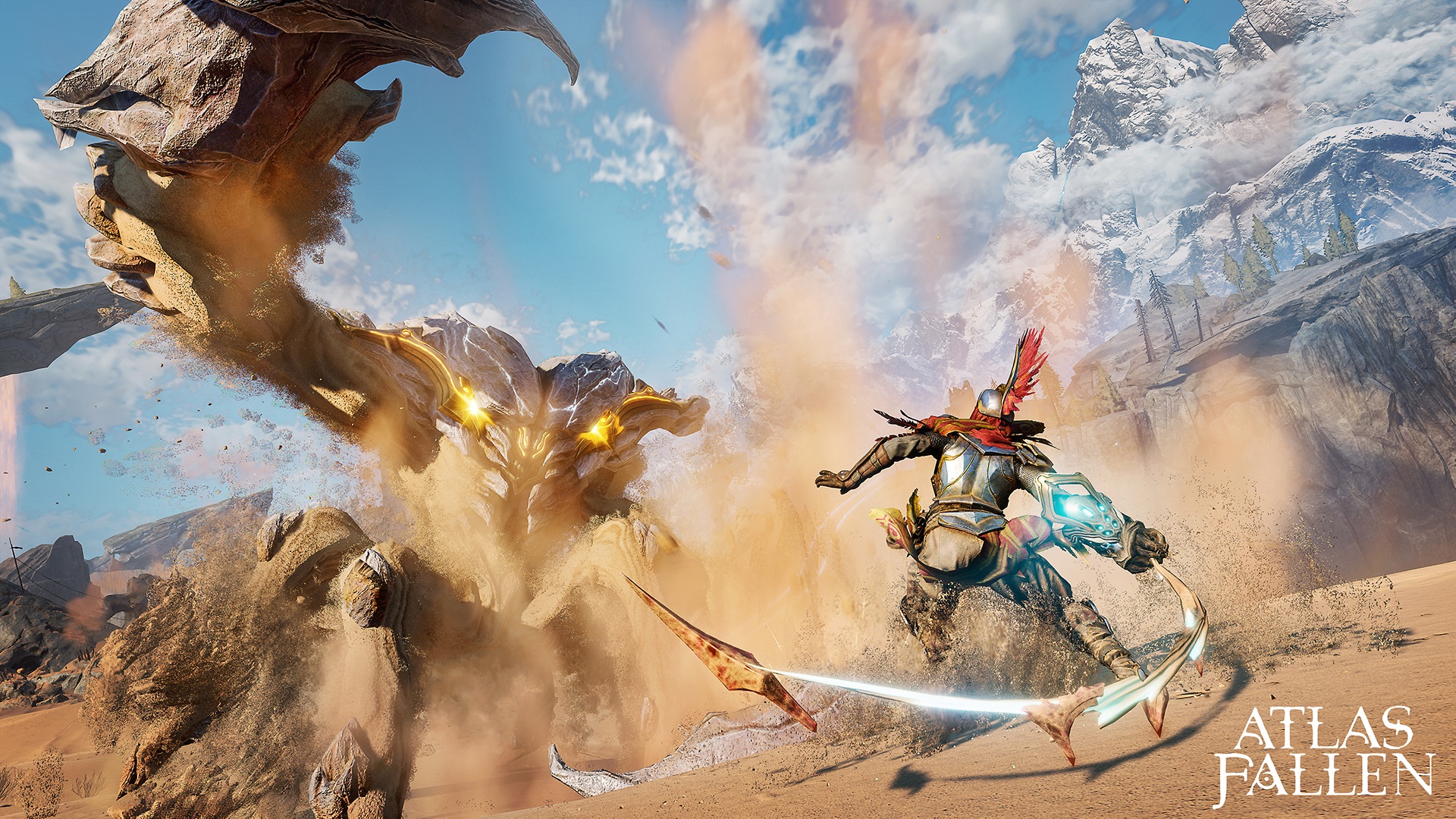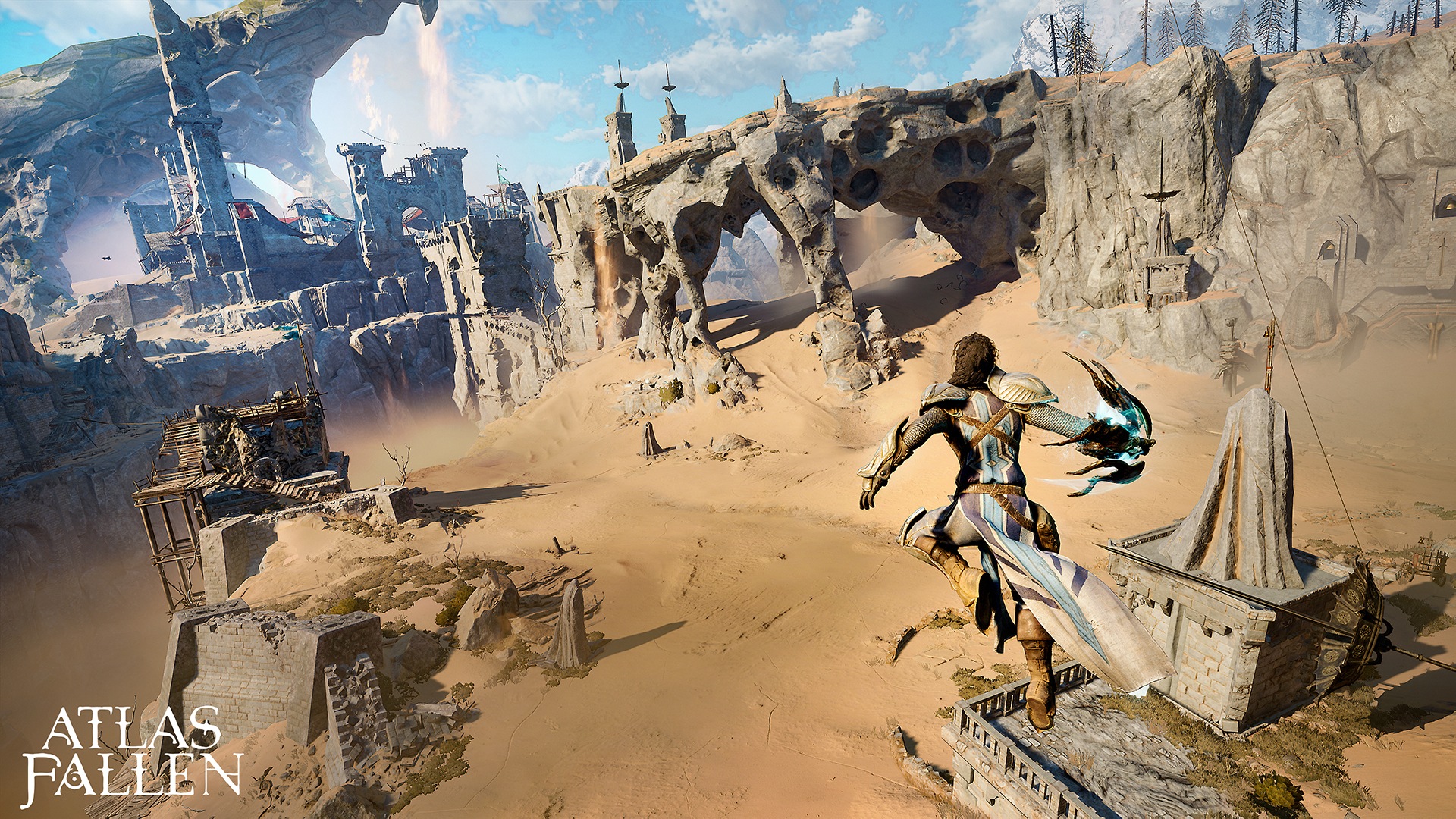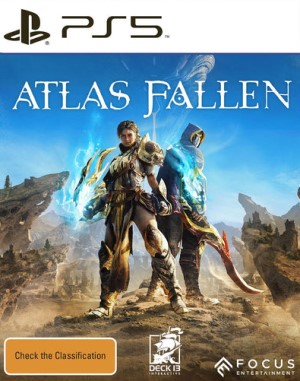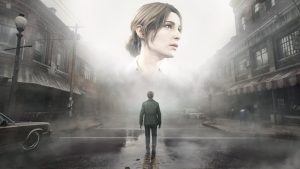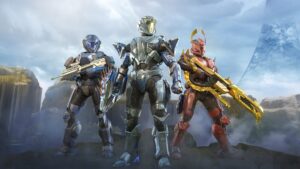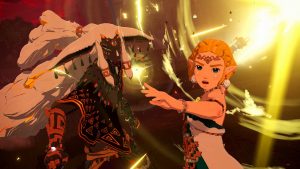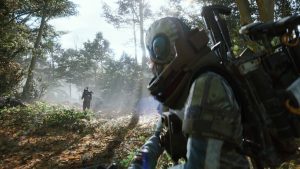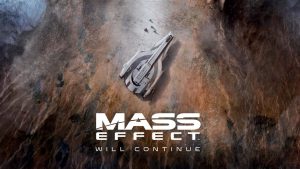
After having spent the better part of the last decade exclusively in the Soulslike arena, Deck13 is now stepping into new territory with Atlas Fallen, an action RPG that offers a much more approachable experience and makes speed and momentum its key pillars. But while it is, of course, a very different kind of experience from what the developer has worked on before, the end product feels rough around the edges in very familiar ways. Like the likes of The Surge and The Surge 2 before it, Atlas Fallen is a solid enough game with its fair share of strengths, but many of its best ideas are let down by an abundance of jank and a disappointing lack of polish.
Take the game’s setting for instance, which is undoubtedly one of its biggest strengths. Set in a fantasy world that is ruled over by Helos, a tyrannical, all-powerful entity, the world of Atlas Fallen, which once used to be lush and gorgeous, now lies almost entirely buried in sand. The landscapes are wracked with sandstorms, monsters and nightmarish beasts roam the lands everywhere, and the population struggles with everything from heat to starvation to any number of other life-threatening problems. It’s an excellent setting that feels unique in the fantasy space thanks to its aesthetic, and it pulled me in right from the get go.
"Atlas Fallen is a solid enough game with its fair share of strengths, but many of its best ideas are let down by an abundance of jank and a disappointing lack of polish."
What also helped was the rich lore and strong worldbuilding Atlas Fallen’s setting boasts. Making your way through the experience and learning more about the world’s history and the conflicts of the past that led to present day remains an engaging experience throughout, and the game does a good job of doling out intriguing new details at a regular clip to ensure that it retains your interest and attention. All of this comes with a few caveats though, as so many things in Atlas Fallen do, because though the game has a fascinating setting with an interesting history, it just doesn’t have the narrative chops to back it up in any meaningful way.
The cutscenes vary wildly in quality, and while some do a decent enough job of showing off the game’s world, others feel choppy and jarringly directed during key moments. The characters are dull and uninteresting with almost no exceptions, and even though some of them do seem like intriguing personalities on paper, they’re frequently let down by shoddy voice acting and rough writing, the latter having a frustrating knack of rushing through things rather than letting characters develop and letting the player sit with major new story reveals. It all feels like a very uneven experience, narratively speaking- even though I enjoy existing in the world of Atlas Fallen, I’m let down by how it tells its story.
Similarly, the gameplay side of things deserves genuine praise for many of its ideas, as well as criticism for how it builds on some of them. Atlas Fallen is all about speed, whether you’re in combat or out exploring its world. The traversal mechanics do a much better job of making good on that promise than most other gameplay elements. Using the powers of a mysterious, fabled gauntlet that you acquire early on, you can shape the sands of the world as you see fit, which allows you to surf through landscapes at blistering speeds (as long as there’s sand underneath your feet, which tends to be the case more often than not). Sand surfing is easily one of Atlas Fallen’s most notable highlights. It feels appropriately quick and snappy, the controls are tight and responsive, and it makes the simple act of going from point A to point B enjoyable on a very fundamental level. The sense of speed and momentum the game conveys while you’re surfing on the sands never stops impressing, even when you’re deep into the experience.
"It all feels like a very uneven experience, narratively speaking- even though I enjoy existing in the world of Atlas Fallen, I’m let down by how it tells its story."
It helps that exploration in general tends to be a lot of fun in Atlas Fallen. The locations the game takes you to are all gorgeously designed, varied, and brimming with awe-inspiring vistas to see, from waves of dust flowing over massive mountains to ancient cities buried beneath an ocean of sand. Mechanically, what you find in these areas is pretty run-of-the-mill, from side quests to loot to crafting and upgrade resources, but that does a decent enough job of rewarding you for your curiosity, even if the visual design of the places you’re exploring does most of the heavy lifting. Best of all, Atlas Fallen doesn’t feel unnecessarily large- rather than throwing you into a massive open world, it sequentially takes you from area to area, scattering multiple large, open environments across the experience, so that the optional content on offer always feels manageable rather than overwhelming.
But again, there’s a catch- sand surfing is a blast, and Atlas Fallen’s world is fun to explore, especially from a visuals perspective, but the core, moment-to-moment movement feel incredibly clunky most of the time. There’s a constant underlying sense of unresponsiveness that pervades through every basic movement you make in Atlas Fallen, and the simplest of acts – walking, running, jumping, dashing – never feel as snappy as they should. That impacts combat as well- in a much more significant way, in fact.
Combat in Atlas Fallen is all about speed and momentum, with the focus being on being aggressive and keeping up a constant flow of attacks against your enemies so you can build up your Momentum Bar. The more you build it up, the deadlier you become, from your attacks dealing more damage to being able to utilize the active and passive abilities of your equipped Essence Stones to even your weapons changing shape and becoming larger. At the same time, having a fuller Momentum Bar also means you take more damage, and this risk/reward mechanic means dodging and parrying attacks is key. In combat encounters where you’re fighting multiple enemies of different kinds at the same time – which happens frequently – remaining quick and agile is critical to survival.
"There’s a constant underlying sense of unresponsiveness that pervades through every basic movement you make in Atlas Fallen, and the simplest of acts – walking, running, jumping, dashing – never feel as snappy as they should. That impacts combat as well- in a much more significant way, in fact."
But again, the movement mechanics don’t back that up. Attacks often feel sluggish and unresponsive, and are crippled often by issues such as shoddy hit detection and the game failing to register inputs. Aerial combat feels clunky, because moving around when airborne is even sloppier than moving around on the ground. Simple actions like dodging and locking on to enemies never feel as precise as they should. There’s a general lack of polish that accumulates chip damage with dozens of tiny slashes, all of which comes together to make Atlas Fallen’s combat a frequently frustrating affair. Add to that sudden spikes of difficulty during some boss fights, and things become even more problematic.
Some of that is curbed to some extent by the game’s impressive suite of progression and customization mechanics. The build variety that Atlas Fallen boasts is perhaps its one strength that I would praise without any qualifications whatsoever. That largely revolves around crafting and equipping Essense Stones, but there’s a surprising amount of options here, and more importantly, a surprising amount of options that feel meaningfully valuable. Finding the Essense Stones that suit your play style and tailoring your build to the way you want to approach combat feels very rewarding due to the flexibility the game affords. It’s disappointing that that’s let down by the inconsistent combat, but those looking for complex RPG systems will be impressed by what Atlas Fallen has on offer nonetheless.
On the technical side of things, anybody who’s played Deck13’s games before will likely not be surprised in the slightest that Atlas Fallen is as unpolished and janky as it is. Rough character animations, texture pop-in, UI glitches, inputs not being read properly, the occasional freezing issue here and there- there’s a level of jankiness to Atlas Fallen that burdens the experience in a number of ways, even if there aren’t too many issues that single-handedly feel game-breaking. It helps that the game’s gorgeous art design is what helps it stand out on a visual level rather than any technical achievements.
"Thanks to its setting, worldbuilding, traversal and exploration, and the deep progression systems, Atlas Fallen is still a game worth a look in spite of its issues. But it does have issues, and they’re numerous, and not easy to ignore, especially when they add up the way they do."
In the end, Atlas Fallen is about what I expected it to be- a solid game that deserves legitimate praise for some of the things it does, but one with more than a few rough edges, all of which combine to prevent the game for ever managing to reach its potential in disappointing ways. Thanks to its setting, worldbuilding, traversal and exploration, and the deep progression systems, Atlas Fallen is still a game worth a look in spite of its issues. But it does have issues, and they’re numerous, and not easy to ignore, especially when they add up the way they do.
This game was reviewed on the PlayStation 5.
Fascinating setting with a unique aesthetic; Engaging worldbuilding and rich lore; Strong art design; Sand surfing remains consistently enjoyable; Engaging exploration, thanks in large part to the visual design and variety of environments; Combat is conceptually interesting; Deep, flexible progression mechanics.
Shoddy storytelling doesn't do justice to the strong setting; Moment-to-moment movement feels incredibly clunky; Unresponsive, sluggish combat can be quite frustrating; Plenty of technical issues; Pervasive lack of polish.









